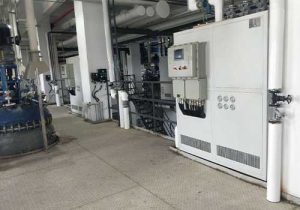energy efficient heater
Energy Efficient Heaters: Enhancing Comfort and Sustainability
Definition of Energy Efficient Heaters
Energy-efficient heaters are systems designed to provide heating services with minimal energy consumption. They operate on the principle of using less energy to deliver the same performance as traditional heaters, thereby reducing costs and environmental impact.

Working Principles of Energy Efficient Heaters
The operation of energy-efficient heaters varies based on their type. For instance, heat pumps work by absorbing ambient heat from air, water, or earth, compressing it to increase temperature, and then releasing it to heat water or spaces . Electric space heaters, on the other hand, may feature ECO modes that adjust heating output to match the room’s temperature, conserving energy.
Types of Energy Efficient Heaters
Several types of energy-efficient heaters exist, including:
Heat Pumps: These can be air-to-water, brine-to-water, or water-to-water, offering efficient heating and cooling solutions .
Electric Space Heaters: Some models have ECO modes that save energy by automatically adjusting heat output.
Infrared Heaters: These focus heat on objects or people, reducing energy waste.
Applications of Energy Efficient Heaters

Energy-efficient heaters are used in residential, commercial, and industrial settings for space heating and water heating. They are particularly beneficial in climates with high heating demands, reducing the reliance on fossil fuels.
Efficiency of Energy Efficient Heaters
Energy-efficient heaters are more than just cost-effective; they also contribute to environmental sustainability. For example, air-to-water heat pumps use one kilowatt-hour of electricity to produce several times that amount of thermal energy . Electric heaters with ECO modes can significantly reduce energy consumption compared to standard models.
Environmental Impact of Energy Efficient Heaters
The adoption of energy-efficient heaters leads to reduced carbon emissions and air pollution, aligning with global efforts to combat climate change. They are part of the sustainable energy policy, alongside renewable energy sources.
Industry Trends in Energy Efficient Heaters

The market for energy-efficient heating systems is growing due to advancements in technology and increased consumer awareness of energy conservation. Innovations include the integration of AI for energy savings in HVAC systems and the development of more efficient heat pump technologies.
Product Innovations in Energy Efficient Heaters
New products are being developed to enhance energy efficiency further. For example, some heaters now include smart controls and timers to prevent unnecessary energy use. Additionally, research into high power density magnetocaloric and elastocaloric systems is opening up new possibilities for efficient heating and cooling.
Conclusion
Energy-efficient heaters play a crucial role in reducing energy consumption and environmental impact while maintaining comfort. As technology advances, the efficiency and affordability of these systems are improving, making them an attractive choice for consumers and industries alike. The future of heating is likely to involve even more innovative solutions that prioritize energy efficiency and sustainability.
Related recommendations
3 ton chiller price
253Understanding 3 Ton Chiller PricesA 3-ton chiller is a medium-capacity cooling solution ideal for small commercial buildings, restaurants, server rooms, and industrial processes. This comprehensiv...
View detailswater chiller machine
612Water Chiller Machines: Market Trends, Technological Advancements, and Environmental Impact Water chiller machines play a critical role in maintaining optimal temperatures in industries such as...
View detailsultra low temperature recirculating chillers
310Ultra low temperature recirculating chillers are highly sophisticated pieces of equipment engineered to provide precise cooling at extremely low temperatures, often well below the freezing point o...
View detailsHow to Choose a Suitable Refrigerant for Low Temperature Chiller?
1675How to Choose a Suitable Refrigerant for Low Temperature Chiller? The nature of the refrigerant will directly affect the type, structure, size and operating characteristics of the chiller, an...
View details
 LNEYA Chiller
LNEYA Chiller







HelloPlease log in